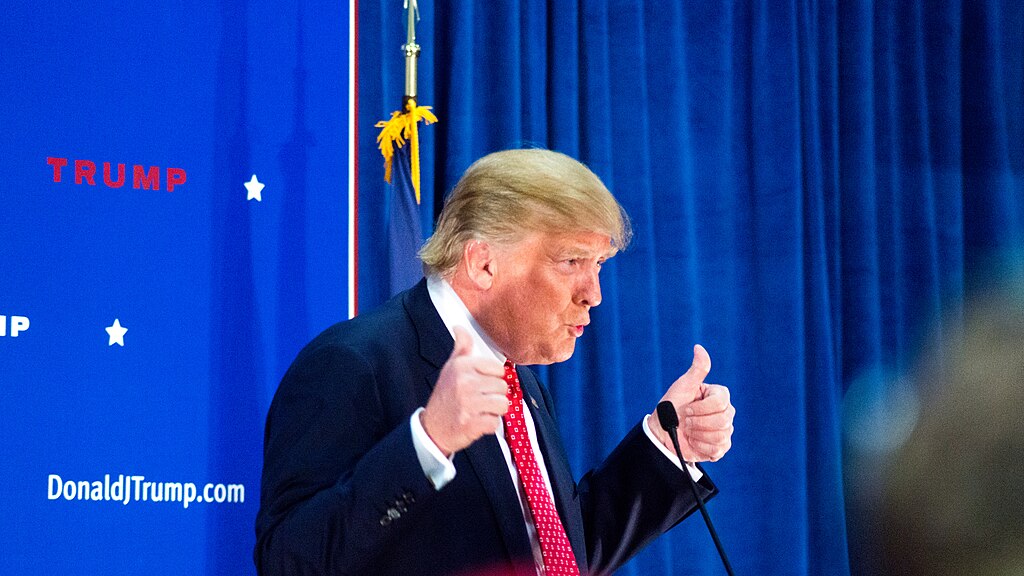Former President Donald Trump has announced a sweeping plan to reform the Internal Revenue Service (IRS) in 2025, vowing to reduce bureaucracy, simplify tax collection, and eliminate what he calls "unnecessary harassment" of taxpayers. The controversial proposal has already sparked heated debate, with supporters praising its bold vision and critics warning of potential chaos.
Simplified Tax System and Smaller IRS Workforce
At the core of Trump’s reform is a simplified tax code aimed at reducing the agency’s workload. According to Trump, this move will make filing taxes easier for millions of Americans, particularly middle-class families and small business owners. The plan also includes replacing traditional audits with automated processes to minimize personal scrutiny.
Trump’s proposal seeks to slash the IRS workforce by 30%, which he claims will "streamline efficiency and curb government overreach." However, opponents argue that such drastic reductions could hinder the agency’s ability to prevent tax evasion and collect revenues effectively.
Additionally, the former president has suggested implementing a flat tax rate for most income levels, a measure he asserts will “eliminate confusion and foster economic growth.” Critics have raised concerns about the potential impact on lower-income taxpayers, who may bear a disproportionate burden under a flat-tax system.
Increased Focus on Wealthy Individuals and Corporations
While Trump’s reform promises relief for average taxpayers, it also emphasizes stricter enforcement for high-net-worth individuals and corporations. The plan aims to close loopholes that allow the ultra-wealthy to avoid taxes, a priority Trump says will "level the playing field."
Despite these assurances, some question whether the plan’s leniency on smaller audits could embolden wealthy individuals to exploit new gaps. Experts warn that without sufficient oversight, corporations may continue to employ aggressive tax avoidance strategies.
Social Media Erupts Over Trump’s IRS Reform Plan
The announcement has generated a firestorm of reactions online, with social media users voicing support, skepticism, and outright disbelief.
- @TaxpayerRevolt: “Finally! Trump is standing up for middle-class Americans tired of being bullied by the IRS.”
- @EconomicAnalyst2025: “Cutting IRS staff? Sounds like a recipe for disaster. Who will ensure billionaires pay their fair share?”
- @SmallBizOwnerUSA: “This is exactly what small businesses need! No more excessive audits and confusing paperwork.”
- @JusticeForAll: “Closing loopholes? Doubtful. Let’s see if Trump really holds corporations accountable or just gives them a free pass.”
- @PolicyWatchdog: “Flat tax? Great for the rich, terrible for low-income families. This isn’t reform, it’s robbery.”
- @FreedomTax2025: “Government overreach has gone on too long! Trump’s plan is a step in the right direction.”



 Trump Launches Operation Epic Fury: U.S. Strikes on Iran Mark High-Risk Shift in Middle East
Trump Launches Operation Epic Fury: U.S. Strikes on Iran Mark High-Risk Shift in Middle East  HHS Adds New Members to Vaccine Advisory Panel Amid Legal and Market Uncertainty
HHS Adds New Members to Vaccine Advisory Panel Amid Legal and Market Uncertainty  U.S. Deploys Tomahawks, B-2 Bombers, F-35 Jets and AI Tools in Operation Epic Fury Against Iran
U.S. Deploys Tomahawks, B-2 Bombers, F-35 Jets and AI Tools in Operation Epic Fury Against Iran  Trump Orders Federal Agencies to Halt Use of Anthropic AI Technology
Trump Orders Federal Agencies to Halt Use of Anthropic AI Technology  Trump Announces U.S. Strikes on Iran Navy as Conflict Escalates
Trump Announces U.S. Strikes on Iran Navy as Conflict Escalates  U.S. Lawmakers Question Trump’s Iran Strategy After Joint U.S.-Israeli Strikes
U.S. Lawmakers Question Trump’s Iran Strategy After Joint U.S.-Israeli Strikes  UK Accepts U.S. Request to Use British Bases for Defensive Strikes on Iranian Missiles
UK Accepts U.S. Request to Use British Bases for Defensive Strikes on Iranian Missiles  U.S.-Israel Strike on Iran Escalates Middle East Conflict, Trump Claims Khamenei Killed
U.S.-Israel Strike on Iran Escalates Middle East Conflict, Trump Claims Khamenei Killed  Israel Launches Fresh Strikes on Iran After Death of Supreme Leader Ayatollah Khamenei
Israel Launches Fresh Strikes on Iran After Death of Supreme Leader Ayatollah Khamenei  Russia Signals Openness to U.S. Security Guarantees for Ukraine at Geneva Peace Talks
Russia Signals Openness to U.S. Security Guarantees for Ukraine at Geneva Peace Talks  Trump Says U.S. Attacks on Iran Will Continue, Warns of More American Casualties
Trump Says U.S. Attacks on Iran Will Continue, Warns of More American Casualties  Israel Declares State of Emergency as Iran Launches Missile Attacks
Israel Declares State of Emergency as Iran Launches Missile Attacks  Netanyahu Suggests Iran’s Supreme Leader Khamenei May Have Been Killed in Israeli-U.S. Strikes
Netanyahu Suggests Iran’s Supreme Leader Khamenei May Have Been Killed in Israeli-U.S. Strikes  Australian PM Calls Alleged Western Australia Terror Plot “Deeply Shocking” After Arrest
Australian PM Calls Alleged Western Australia Terror Plot “Deeply Shocking” After Arrest  Trump Says U.S. Combat Operations in Iran Will Continue Until Objectives Are Met
Trump Says U.S. Combat Operations in Iran Will Continue Until Objectives Are Met  Trump to Address Nation as U.S. Launches Strikes in Iran, Axios Reports
Trump to Address Nation as U.S. Launches Strikes in Iran, Axios Reports  Israel Strikes Hezbollah Targets in Lebanon After Missile and Drone Attacks
Israel Strikes Hezbollah Targets in Lebanon After Missile and Drone Attacks 
































